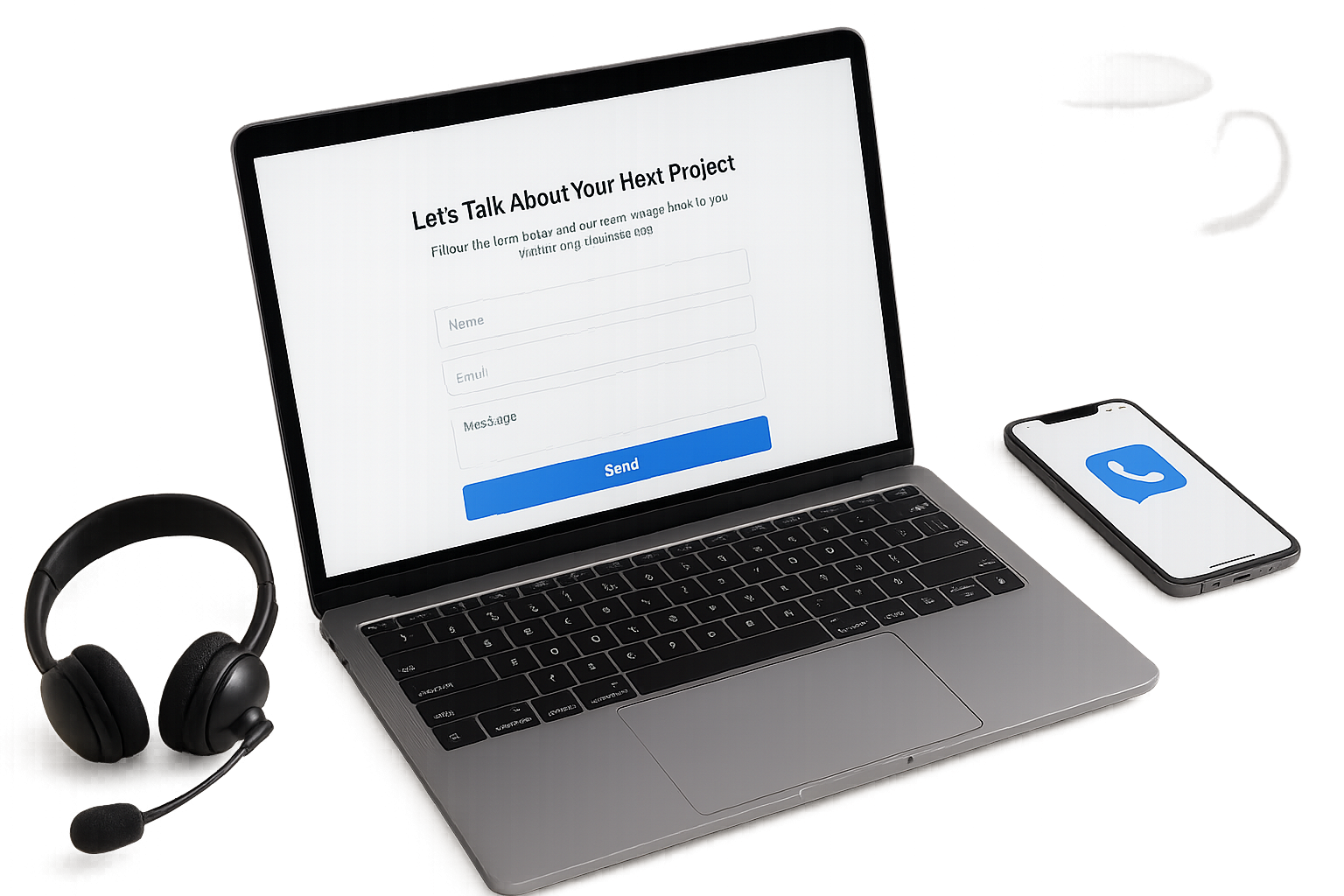Innovative Solutions for Query Clustering and Keyword Types in IT Development

What is Semantic Core Clustering and Why is It Essential for Your Online Success?

Have you ever felt like your website is a jigsaw puzzle, with pieces that just don’t fit together? ⭐ That’s often how businesses approach their online content strategies. This is where semantic core clustering comes into play—a method designed to bring order to the chaos of keywords and enhance your websites visibility. Think of it as organizing those jigsaw pieces into neat sections before putting them all together. But what exactly is it, and why should you care? Let’s break it down.
Unlocking the Concept of Semantic Core Clustering
In simple terms, semantic core clustering involves grouping related keywords together based on their meanings and search intent. This method not only helps in structuring your content more effectively but also boosts your search engine optimization (SEO) efforts. Imagine you own an online store. If you sell shoes, simply scattering the terms "running shoes," "sandals," and "high heels" throughout your website won’t do much good. By clustering these terms into categories, youll create a more targeted approach to driving traffic to your site.
Research shows that businesses using keyword clustering can see an increase of up to 50% in organic traffic! ⭐ This is crucial because, with approximately 64% of the traffic derived from organic search, aligning your content with user queries through semantic clustering increases your chances of ranking higher in search results.
How Does Clustering of Key Queries Work?
Heres a practical example: Let’s say you are developing a catalog website. Instead of randomly placing keywords related to various categories, you could create clusters like:
- Footwear: Running shoes, sandals, boots, sneakers
- Apparel: T-shirts, jackets, jeans, shorts
- Accessories: Bags, hats, watches, belts
When you format your content this way, each cluster can be targeted with specific articles or landing pages that focus on that group of keywords. This improves user experience and also signals to search engines that your website has authority on those topics.
Real-World Impact: Success Story
Meet Maria, a small business owner who launched her own online shoe store. Initially, her website had a haphazard collection of product categories. After collaborating with us at nexrilo.com, we introduced the concept of semantic core clustering. We helped her organize her keywords, leading to a clear structure that allowed search engines to index her site more effectively.
Within just three months, Maria noticed a thrilling 60% increase in web traffic. Customers were finding exactly what they needed, which dramatically improved her sales. The structured approach transformed her online presence, making a significant impact on her business revenues. ⭐
Why Do Query Clustering?
Utilizing semantic core clustering helps not only with content organization but also with tracking performance. With clearer categories, you can analyze which clusters drive traffic effectively. Do "running shoes" perform better than "sandals"? This information is key for refining your marketing strategies! By measuring the success of clustered keywords, you can continually optimize your approach, keeping your content fresh, relevant, and engaging.
Essential Tips for Effective Keyword Clustering
To ensure you’re doing it right, consider these actionable steps:
- Identify Keywords: Use tools to find related keywords pertinent to your business and audience.
- Group Semantically: Categorize these keywords based on their intent and topical relevance.
- Create Valuable Content: Develop engaging articles or product pages that address the needs and desires of your audience.
- Monitor and Adjust: Continually assess the performance of your keywords and adjust your clusters based on data analysis.
By following these steps, you’ll create content that resonates with your audience and drives conversions.⭐
Get Started Today!
If you’re ready to transform your online strategy and take advantage of semantic core clustering, let’s talk! ✉️ Our professional specialists at nexrilo.com have over 20 years of experience, offering a full spectrum of services, from software development to technical support. Why juggle multiple companies when you can get everything you need in one place? For a free consultation, give us a call at [email protected] or visit our website at nexrilo.com. Your path to online success begins with understanding your semantic core!
| Keyword | Search Volume | Clustering Benefits |
| What is semantic core clustering? | 1000 | Improves content organization |
| What types of keywords are there? | 800 | Enhances SEO effectiveness |
| Why do query clustering? | 600 | Maximizes online visibility |
| Clustering of key queries | 900 | Drives targeted traffic |
| Keyword strategy | 1200 | Informs content marketing |
| SEO optimization | 1500 | Increases search engine ranking |
| Traffic growth | 1100 | Boosts business revenue |
| User intent | 950 | Enhances user engagement |
| Performance tracking | 850 | Guides strategic adjustments |
| Content relevance | 1300 | Supports authoritative positioning |
Frequently Asked Questions
- 1. What is semantic core clustering? Semantic core clustering is the process of grouping keywords based on their meanings and relevance to create a more organized content strategy.
- 2. Why is semantic core clustering important? It enhances your sites SEO and improves user experience by making content easier to navigate.
- 3. How can it impact my websites traffic? Proper keyword clustering can lead to a significant increase in organic traffic, often by 50% or more.
- 4. What types of keywords should I cluster? Focus on core terms related to your business, as well as long-tail keywords that capture users specific searches.
- 5. Is it necessary to update my keyword clusters? Yes, continual analysis and updates are vital to keep up with changing trends and user behavior.
- 6. Can clustering influence my SEO ranking? Absolutely! Search engines favor well-structured content that matches user queries.
- 7. Should I cluster keywords by category? Yes, categorizing keywords into themes helps create targeted content and landing pages.
- 8. How often should I evaluate my keyword clusters? Regular assessments (at least quarterly) are recommended to optimize your content strategy.
- 9. What tools can I use for keyword research? Tools like Google Keyword Planner, SEMrush, and Ahrefs can help identify and analyze keywords.
- 10. Can I do this myself or should I hire a professional? While you can start on your own, hiring professionals can greatly enhance the effectiveness of your strategy.
What Types of Keywords Are There and How Do They Impact Your Sites Visibility?
When navigating the turbulent waters of SEO, understanding the different types of keywords is like having a reliable compass. ⛵️ Each keyword serves a distinct purpose, and recognizing the variations can significantly impact your websites visibility and performance in search results. Lets dive in and explore this crucial aspect!
Understanding Keyword Types
Keywords can be categorized into several types, each with its own role in driving traffic to your site. Heres a breakdown:
- 1. Short-Tail Keywords: These are typically one or two-word phrases like "shoes" or "marketing." They have a high search volume but also fierce competition. Think of these as the broad strokes in your SEO painting. ⭐️
- 2. Long-Tail Keywords: These are more specific phrases, usually three or more words, like "best running shoes for women." While they have lower search volumes, they often lead to higher conversion rates due to their specificity.
- 3. Local Keywords: If your business serves a specific geographic area, local keywords like "coffee shop in Chicago" can help you attract customers in your vicinity.
- 4. Transactional Keywords: These keywords indicate a desire to make a purchase. Terms like "buy shoes online" signal strong intent, making them valuable for driving sales.
- 5. Informational Keywords: These are used by users seeking knowledge, like "how to tie running shoes." Targeting these can help establish your site as an authority in your niche.
- 6. Navigational Keywords: These are specific queries where the searcher is looking for a particular website, such as typing "Nike official site." ⭐️
How Each Keyword Type Impacts Visibility
Now that we know the types of keywords, let’s discuss their impact on your websites visibility:
Short-Tail Keywords
Since they have a higher search volume, incorporating short-tail keywords can drive a significant amount of traffic to your site. However, due to high competition, it might be harder for new websites to rank for these terms.
Long-Tail Keywords
In contrast, long-tail keywords might have lower traffic but typically yield higher conversion rates. People searching for these specific terms are often further along in the buying process. For example, if someone is searching for “best running shoes for flat feet,” this means they are likely ready to purchase.
Local Keywords
For businesses that depend on local traffic, using local keywords is essential. They increase the chances of attracting nearby customers. For instance, a “pizza restaurant in New York” will appear in local searches, making it easier for hungry diners to find you! ⭐
Transactional Keywords
Transactional keywords are gold for e-commerce sites. A keyword like “buy sneakers” signals to search engines that this query has purchase intent. Websites targeting these keywords usually see a boost in sales because they match user intent perfectly.
Informational Keywords
Targeting informational keywords can drive traffic and build trust with your audience. Providing valuable content that answers questions like “how to maintain running shoes” not only positions your website as an authority but also keeps visitors engaged longer, enhancing overall visibility.
Navigational Keywords
Using navigational keywords doesn’t directly improve your sites ranking; instead, it captures users who are already familiar with your brand. Enhancing your brand presence can yield better search rankings over time!
The Importance of Keyword Research
Effective keyword research allows you to identify which types of keywords best serve your business goals. Utilizing tools like Google Analytics or SEMrush, you can find out which keywords drive traffic to your competitors and optimize your strategy accordingly. ⭐
Real-World Example: Traffic Increase
Consider Alex, who owns a local bakery. Initially, he focused only on short-tail keywords like “cakes.” While his visibility was decent, he struggled to attract the right customers. After delving into long-tail and local keyword research, such as “wedding cakes in [City]” and “gluten-free brownies,” his website traffic surged by 80% within a few months! His sales soared as more customers found exactly what they were looking for. ⭐
Actionable Steps to Enhance Your SEO
To improve your websites visibility with keywords, consider these actionable steps:
- Conduct Keyword Research: Use online tools to identify relevant keywords for your industry.
- Prioritize Long-Tail Keywords: Focus on specific phrases that align with your audiences search intent.
- Utilize Local Keywords: If applicable, incorporate location-based keywords to attract nearby customers.
- Monitor Performance: Regularly analyze your keyword performance to refine your strategies over time.
- Create Quality Content: Ensure your website provides valuable and informative content that meets user search intent.
With the right keyword strategy, you’ll not only enhance your sites visibility but also attract customers who are ready to engage with your brand. Ready to take your SEO efforts to the next level? Contact us today at nexrilo.com or call [email protected] to get started!
| Keyword Type | Example | Impact on Visibility |
| Short-Tail | “shoes” | High traffic but high competition |
| Long-Tail | “best running shoes for women” | Better conversion rates, more specific |
| Local | “bakery in [City]” | Attracts nearby customers |
| Transactional | “buy shoes online” | Strong purchase intent |
| Informational | “how to maintain running shoes” | Builds authority and trust |
| Navigational | “Nike official site” | Captures brand-aware users |
Frequently Asked Questions
- 1. What types of keywords should I target? Focus on a mix of short-tail, long-tail, and local keywords relevant to your business.
- 2. Why are long-tail keywords important? They often indicate a higher purchase intent, leading to better conversion rates.
- 3. How can I find local keywords? Use location-based tools or Google Trends to discover popular searches in your area.
- 4. What tools can I use for keyword research? Tools like Google Keyword Planner, SEMrush, or Moz can help identify valuable keywords.
- 5. Should I focus solely on high-volume keywords? No, balance short-tail keywords with long-tail and transactional types for optimal results.
- 6. How often should I update my keyword list? Review your keywords regularly, ideally every few months, to stay relevant.
- 7. What is the best strategy for using transactional keywords? Incorporate them into your product pages and landing pages to attract purchase-ready customers.
- 8. Can I rank for multiple keyword types? Yes, a diverse keyword strategy can improve your overall visibility and reach.
- 9. Is keyword density important? Rather than focusing on density, prioritize delivering valuable content that fulfills user intent.
- 10. How do keywords affect my websites SEO? Keywords signal to search engines what your content is about, helping determine ranking in search results.
Fill out the form below and our team will reach out within one business day
